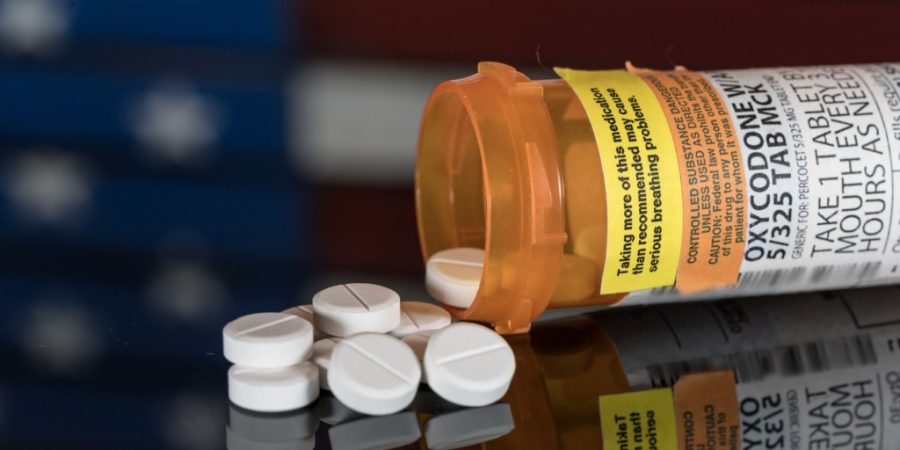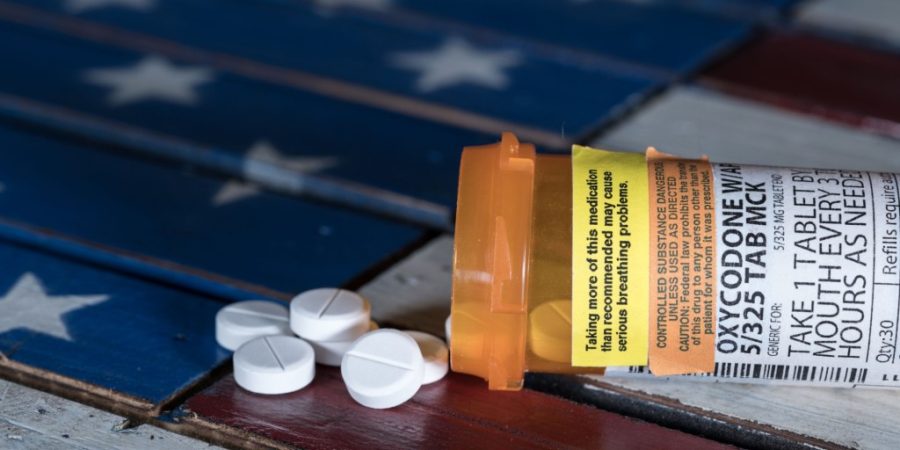
If you’re a veteran battling chronic pain and addiction, you may be searching for an alternative. Many veterans develop an oxycodone addiction because they’re struggling to manage service-related pain. However, at some point, the medication becomes less effective, but your body still craves it. To make matters worse, you’re still in pain. If this is the case for you, Heroes’ Mile can help you start recovery without choosing between addiction or chronic pain.
Table of Contents
Common Pain Medications with Oxycodone


Oxycodone is a primary ingredient in a variety of commonly used painkillers prescribed to veterans for pain management. Depending on the brand and dosage prescribed, oxycodone can come in different colors, shapes, and sizes. In addition, it’s often paired with other medications such as acetaminophen and Aspirin to increase the level of pain relief. Some of the most well-known brand names of pain medications containing oxycodone include:
- OxyContin: As one of the most commonly abused prescription drugs, OxyContin is designed to provide chronic pain relief slowly throughout the day. However, some users crush and snort or inject it as a water solution to achieve the full effect of the drug sooner.
- Percocet: The combination of oxycodone and acetaminophen creates Percocet. Percocet is often abused similarly to OxyContin, and it is a common source of oxycodone addiction.
- Roxicodone: This is a rapid-release form of oxycodone. It’s typically used to calm patients before surgery or for 24/7 pain management. However, this form of oxycodone is just as dangerous when abused.
Oxycodone is classified as a schedule II drug according to the Controlled Substances Act, which means that, although it serves a medical purpose, users are at a high risk of developing an oxycodone addiction.
Chronic Pain and Oxycodone Addiction
Opioids such as oxycodone interact with the opioid receptors on the nerve cells throughout the body. By doing so, they block pain signals from being sent to the brain. For this reason, oxycodone is commonly prescribed by a doctor for pain management involving short-term and long-term usage. Although short-term usage tends to be safer because there is less time for dependence and tolerance to build, opioids are often prescribed for long-term pain management because of a lack of other options.
Some veterans using oxycodone have a prescription to manage severe pain after surgery or chronic pain as a result of service-related injuries. However, misuse of these prescriptions can develop into an oxycodone addiction. According to the National Institute on Drug Abuse, about two-thirds of veterans experience pain. And in some cases, these prescriptions help many veterans enjoy a better quality of life. But the addictive nature of opioids can lead those trying to get through the day in as little pain as possible to become addicted to oxycodone.
One of the biggest dangers is the feeling of euphoria that accompanies the pain relief. This commonly leads to oxycodone abuse, especially for veterans who are struggling with unmanageable pain or mental health issues. This abuse in turn leads to a higher tolerance, dependence, or an oxycodone addiction. In worst-case scenarios, oxycodone abuse can cause an overdose or death. For all of these reasons, veterans battling addiction should seek professional treatment if they’re ready to quit because sudden discontinuation of the medication can have harmful effects.
Signs of Oxycodone Addiction
The development of addiction doesn’t look the same for everyone. With this in mind, these are the common signs and symptoms you or a loved one is battling oxycodone addiction.
Behavioral Symptoms of Oxycodone Addiction:
- Frequently visiting the doctor or doctor shopping
- Taking higher doses than prescribed
- Taking pills in a manner to get higher
- Borrowing or stealing unprescribed pills
- Neglecting responsibilities or self-care
- Isolating from loved ones
Physical Symptoms of Oxycodone Addiction:
- Loss of appetite
- Nausea and vomiting
- Headaches
- Sweating
Psychosocial Symptoms of Oxycodone Addiction:
- Anxiety
- Depression
- Paranoia
- Hallucinations
- Delusions
Common Risk Factors of Opioid Addiction in Veterans
Civilians and veterans alike are at risk of developing an oxycodone addiction. However, some of these risk factors are unique to veterans, therefore putting them at a higher risk of substance abuse that turns into an addiction. Such risk factors include:
- Deployment
- Combat-related injuries
- Service-related injuries
- Military sexual trauma
These risk factors, in addition to reintegration challenges and a variety of environmental stressors, put veterans at high risk for substance use disorders. Likewise, chronic pain as a result of combat or service-related injuries is a major contributor to prescription opioid misuse. However, some veterans may begin to rely on oxycodone to cope with the emotional and physical trauma from deployment or sexual assault. In these situations, veterans carrying the trauma from their time in the service may turn to substance abuse if they don’t seek out professional treatment for oxycodone addiction.
Effects of Oxycodone Addiction
Above all, veterans who don’t get help for their oxycodone addiction are at risk of experiencing any number of the negative effects of oxycodone abuse. Such effects include:
- Cognitive impairments
- Financial instability
- Incarceration
- Suicidal ideation
- Death
Additionally, those struggling with oxycodone addiction are at risk of overdosing. If you or a loved one are showing the signs and symptoms of an overdose, seek medical attention immediately.
Treatment Plans for Veterans Battling Opioid Addiction


Relying on oxycodone to cover up painful memories from your time in the service or to remedy unmanageable pain beyond your prescription can have devastating effects. However, it’s never too late to get help. If you’re fighting against an oxycodone addiction. Heroes’ Mile can help you if you’re seeking treatment to recover from addiction and find an alternative to manage your chronic pain.
Many veterans entering addiction treatment start with medical detox. Here, patients rid their bodies of harmful toxins and begin recovery with a healthier foundation. Our medical detox is done safely with the 24/7 supervision of addiction specialists and mental health professionals to prevent dangerous opioid withdrawal symptoms. Additionally, these symptoms could lead to a flare-up in chronic pain and worsen symptoms associated with a mental health disorder.
After completing detox, patients can benefit from a wide range of therapeutic modalities available through the other treatment programs. These are all suitable for helping veterans overcome addiction while treating chronic pain. Such programs include:
Moreover, a combination of these services can help veterans improve their mental health while finding an alternative for pain management. With the support of other veterans, you won’t have to fight alone.
Find Alternative Pain Relief with the Help of Heroes’ Mile
Living with chronic pain as a veteran is hard, especially if those around you don’t understand what you’re going through. But at Heroes’ Mile, everyone is a veteran. This means that everyone at the treatment center shares your experiences. You can be open about your addiction and mental health struggles without the fear of judgment.
If you want to learn more about how we can help you, call us at 888-838-6692. However, if you feel more comfortable, you can send us your questions by submitting a confidential contact form online. We want to help you overcome oxycodone addiction and find a suitable treatment for your pain.
The post Oxycodone Addiction: Signs and Alternatives for Veterans appeared first on Heroes’ Mile Veterans Recovery Center.
Source
Original Author: Heroes’ Mile

